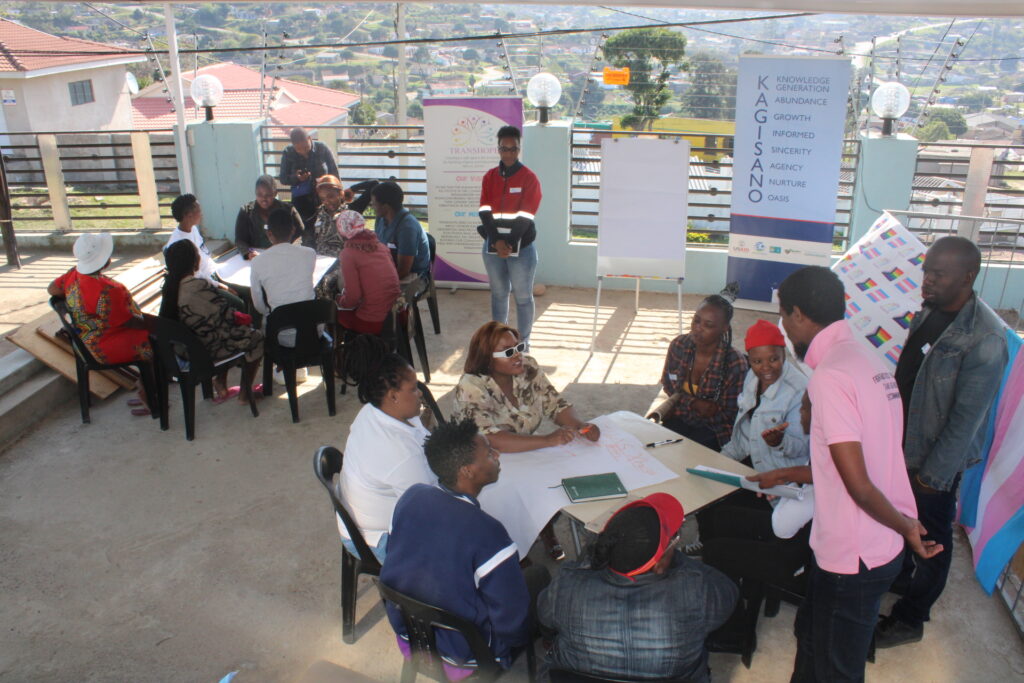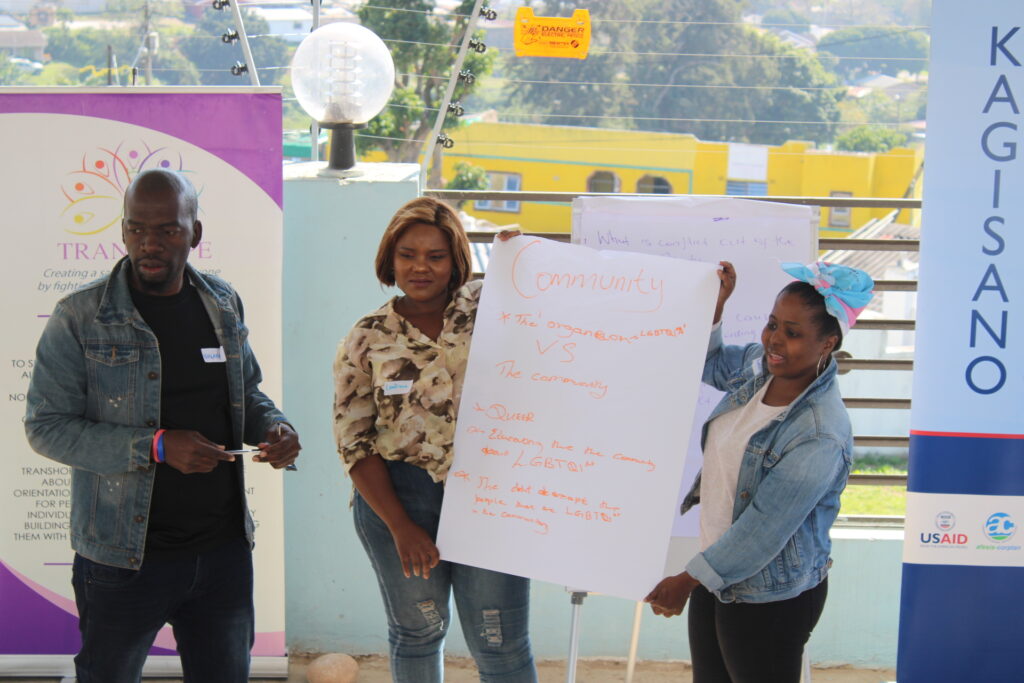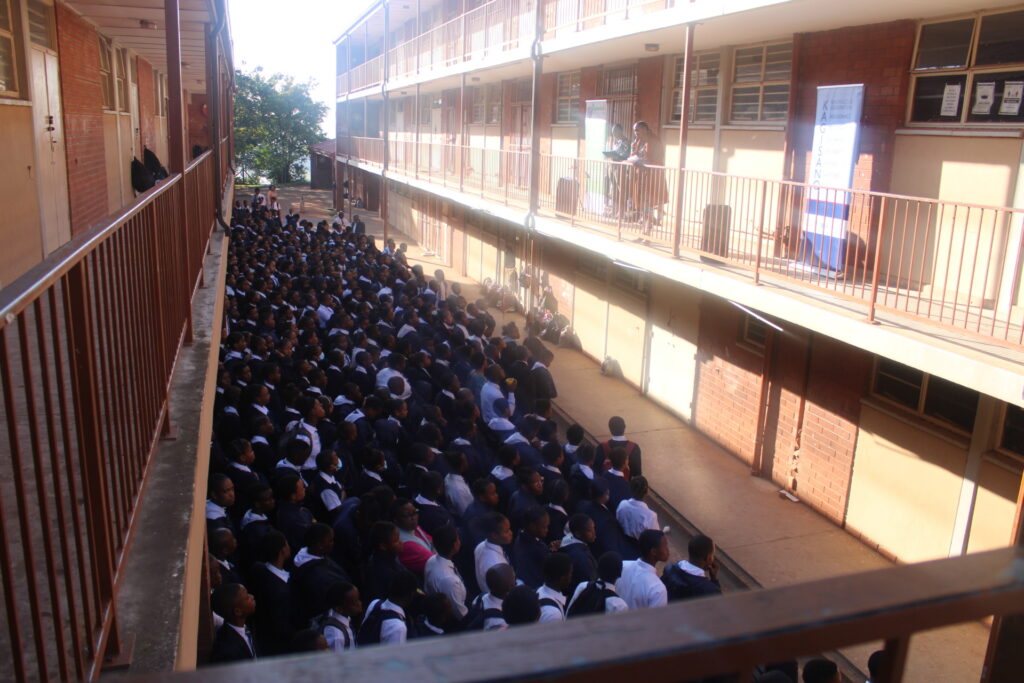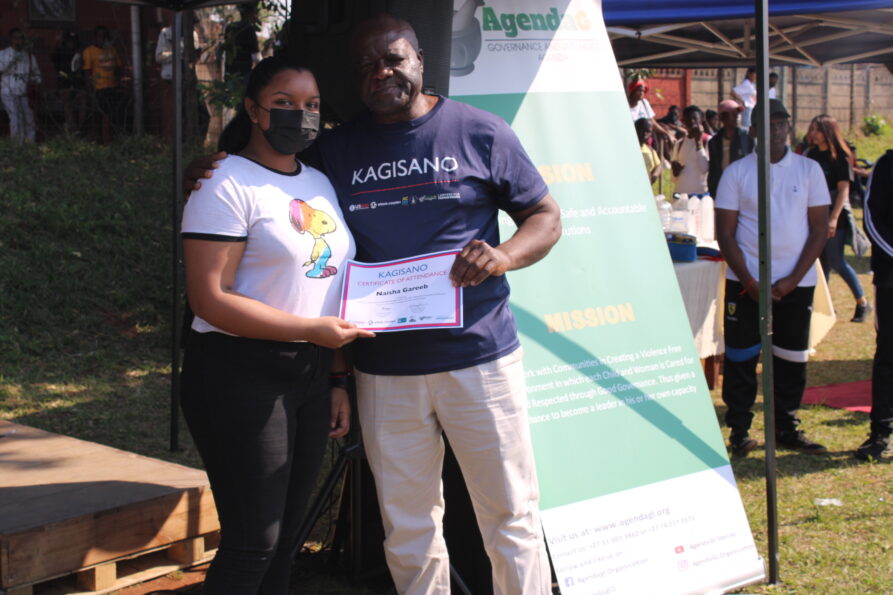By Watson Bharu
August was a month of empowerment and positive change, with Governance Livelihoods Agenda (AgendaGL) hosting several events as part of the Kagisano programme. The thematic areas of these events focused on conflict management and resolution, gender-focused violence, and addressing violence in schools.
A workshop on conflict management and resolution training targeted the LGBTQI+ community, a group that often faces conflicts related to their sexual orientation. In many communities and families, acceptance of alternative sexual orientations is still a challenge. This training aimed to equip them with the skills and techniques to manage conflicts effectively. The second training was for the Sivananda High School Peace Building Team (PBT) and Peace Ambassadors (PA) to manage and resolve conflict at school.

The content of the Conflict Management and Resolution training sessions included contextualising conflict, conflict mapping and management, understanding conflict analysis and sensitivity, skills, and techniques for dealing with conflict as well as understanding key concepts of cultural sensitivity and its components.
In Isipingo’s Ward 90, the AgendaGL team hosted a workshop on Gender-Based Violence (GBV) with the objective to empower women in Isipingo to discuss and open about GBV issues and find ways to emancipate themselves from toxic relationships. This event featured presentations from the eThekwini Municipal Business Unit, which shared valuable information on business registration, cooperatives, and vendor permits. Attendees included the women of Isipingo, members of the Ward 90 PBT, and AgendaGL representatives.

These Kagisano events continue to empower communities to address issues of violence and conflict through locally tailored solutions. Communities are moving towards self-reliance and taking initiative-taking steps to resolve issues within their neighbourhoods. The Kagisano programme brings an understanding to the key drivers of violence such as poverty and unemployment. It equips communities with the know how to find solutions to address these root causes on which women and the LGBTQAI+ community are disproportionately affected and are vulnerable owing to their gender.
Participants in these events were encouraged to form their own constituencies to implement and transfer the knowledge they have gained.
Given the rise of violence cases in many South African communities, we hope that Kagisano will be able to reach wider areas and impact more communities positively. Because in the areas where the Kagisano programme is present, we are seeing positive transformation. The Community Policing Forum (CPF) members in KwaMashu, trained by AgendaGL, have shown professionalism in handling community disputes, prompting a request for training from the KwaMashu Police commander. Strelitzia High School’s peace ambassadors initiated a Heritage Day celebration to celebrate the diversity between Black and Indian students, mitigating racial tensions and promoting social cohesion within the school. These success stories serve as a beacon of hope, illustrating the transformative power of education and empowerment.

As we look forward, it is clear that the Kagisano programme has the potential to create lasting change in communities across the region. Through this programme, communities are becoming more self-reliant and better equipped to address the challenges they face. To ensure that the Kagisano programme lives up to its principles, continuous mentorship is implemented, which includes guiding PBTs in devising action plans and effectively involving stakeholders.
Watson Bharu serves as the Communications Officer for the Kagisano Programme at Governance and Livelihoods Agenda.
